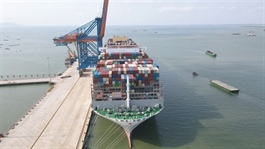SBV proposes restructuring of SCB
SBV proposes restructuring of SCB
Saigon Commercial Bank (SCB) is set to undergo a restructuring process, pending the government's assessment and subsequent decision.

This crucial development was highlighted in a government report sent to the National Assembly and its Standing Committee on September 18 on the execution of select supervisory resolutions from the beginning of its tenure.
As per the report, the government revealed that the State Bank of Vietnam (SBV) presented restructuring plans for SCB – a bank that entered special control in October 2022.
The initiative followed a series of events where several of SCB's branches experienced a surge in customer withdrawals, prompting the SBV to place the bank under rigorous scrutiny. This administrative action aims to tightly control and limit the negative impact on the bank and the broader credit system.
Historically, several banks have undergone similar rigorous controls but later recovered and thrived.
The restructuring proposal for SCB is based on a comprehensive review, suggestions from the bank itself, and those of the special control committee. Thus, nearly a year after entering special control, SCB's restructuring proposal has been finalised and awaits approval from the relevant authorities.
Moreover, the SBV has proposed and received endorsement on the forced transfer of four other banks that were previously under special control, including the Construction Bank, OceanBank, Global Petroleum Bank, and Dong A Bank.
The relevant parties are progressing with further activities following the approved decisions, and the SBV will present the restructuring plans for these banks to the government for endorsement.
Ensuring transparency and preventing asset losses during the restructuring of the weaker banks, including SCB, is a priority emphasised by Prime Minister Pham Minh Chinh.
Apart from these banks, the report also mentioned that weaker non-banking credit institutions are being reviewed by the SBV to assess the need for restructuring.
In its assessment, the National Assembly recognises the challenges in identifying and negotiating with banks for forced transfers. Such complexities arise from the voluntary participation of these banks and the time required to persuade shareholders, especially foreign strategic stakeholders. The mechanisms and financial resources to handle weak credit institutions remain fraught with obstacles and prolonged procedures.
























